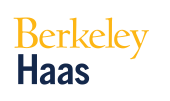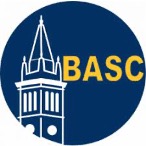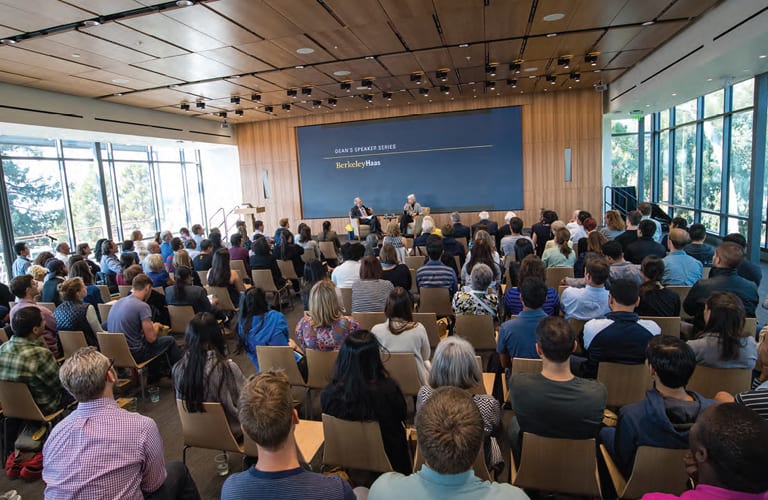
by ClausenCenter | Nov 13, 2023 | Conferences, Events
NOVEMBER 18, 2023
UNIVERSITY OF CALIFORNIA BERKELEY

Program |

Venue |

Photos |

Hotel |

Contact |
UC Berkeley’s Clausen Center for International Business and Policy will hold its 4th biennial Conference on Global Economic Issues: Deglobalization and Fragmentation, on Saturday, November 18, 2023.
The Clausen conference will host prominent economists, policymakers, and industry participants. This year we welcome Pinelopi Goldberg, Elihu Professor of Economics and Professor of Management at Yale University, to give the keynote address.
Thank you for joining us for the 2023 Clausen Center Conference!
We hope you enjoy the conference photos and you can find the participant list here.
We look forward to seeing you again and best wishes for the new year!

PROGRAM
| 8:30-9:00am |
Registration & Breakfast |
| 9:00-9:15am |
Opening Remarks
Benjamin E. Hermalin Executive Vice Chancellor and Provost,
University of California Berkeley |
| 9:15-10:30am |
Session 1 – Energy, Trade and the Environment
Moderator: Pierre-Olivier Gourinchas International Monetary Fund
Panelists:
Cullen S. Hendrix Peterson Institute for International Economics (View Session Slides)
Catherine Wolfram MIT Sloan School of Management
Joseph Shapiro University of California Berkeley (View Session Slides)
|
| 10:30-11:00am |
Break |
| 11:00-12:30pm |
Session 2 – Semiconductors, export restrictions and CHIPs Act
Moderator: Matilde Bombardini University of California Berkeley
Panelists:
Alberto L. Sangiovanni-Vincentelli University of California Berkeley and co-founder of Cadence and Synopsys (View Session Slides)
Chad P. Bown Peterson Institute for International Economics
Matthew S. Borman Deputy Assistant Secretary of Commerce for Export Administration – Bureau of Industry and Security
Ronnie Chatterji Duke University and former White House Coordinator for CHIPS Act Implementation at the National Economic Council (NEC) |
| 12:30-1:45pm |
Lunch |
| 1:45-3:15pm |
Session 3 – Financial issues related to de-dollarization and international capital flows
Moderator: Barry Eichengreen, University of California Berkeley
Panelists:
Patricia C. Mosser Columbia University
Gene Frieda London School of Economics
Matteo Maggiori Stanford Graduate School of Business |
| 3:15-3:45pm |
Break |
| 3:45-4:45pm |
Egon & Joan von Kaschnitz Keynote Lecture
“Globalization in Crisis”
Pinelopi Goldberg Elihu Professor of Economics and Professor of Management, Yale University (View Session Slides) |
| 4:45-5:00pm |
Closing Remarks – Matilde Bombardini and Cecile Gaubert (Clausen Center Co-directors) |
| 5:00-6:00pm |
Reception |

Venue
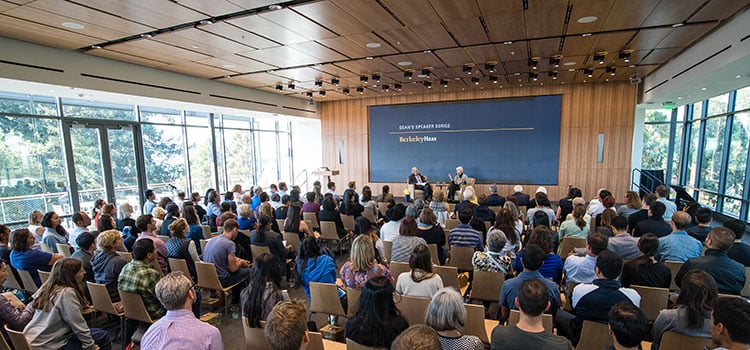 All sessions will be held at:
All sessions will be held at:
Chou Hall
University of California Berkeley
Spieker Forum (6th Floor), Cheit Ln, Berkeley, CA 94720

Parking and Transportation
Parking
Parking Passes for participants can be reserved in advance.
Parking validation is available at Stadium Parking Lot.
Contact econevents@berkeley.edu to request a permit.
Transportation
Shuttle service will be provide to and from the conference venue for all those lodging at Le Meridien San Francisco hotel.
For additional transportation options, please visit Bart.gov or 511.org

Accommodation
 Le Meridien San Francisco, 333 Battery Street, San Francisco
Le Meridien San Francisco, 333 Battery Street, San Francisco
Reservations at Le Meridien are now closed. If you require lodging, we recommend Hotel Shattuck Plaza and Residence Inn.
Conference participants are responsible for any lodging expenses.
Please contact econevents@berkeley.edu for more information about discount rates.

Contact
For questions regarding conference logistics, please contact econevent@berkeley.edu

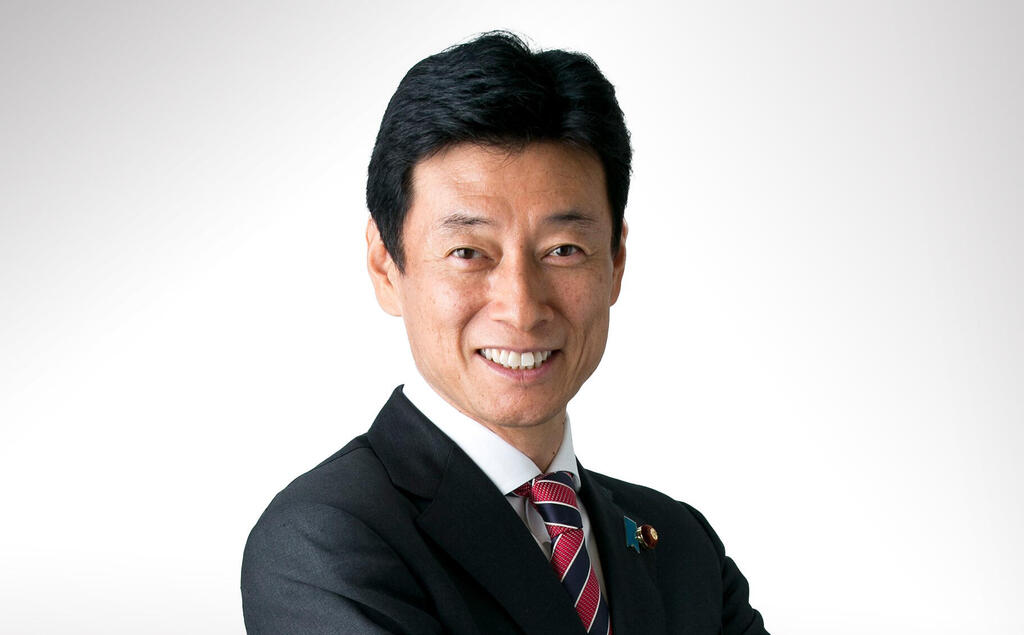
by ClausenCenter | Nov 13, 2023 | Events
The Clausen Center is co-sponsoring a talk by Japan’s Minister of the Economy, Trade, and Industry, Nishimura Yasutoshi, on Nov. 15 at 12:30 pm in Chou Hall’s Spieker Forum. The event is held in partnership with the Berkeley APEC Study Center; the Institute for East Asian Studies; the Center for Japanese Studies; and Berkeley SkyDeck, with support from the Haas Asia Business Club. The talk, covering fostering entrepreneurship and innovation in Japan, will look at how Japan is driving transformation change through its support for startups. Mr. Nishimura will also participate in a conversation with Haas School of Business Acting Dean Jenny Chatman.
The program, which will run from 12:30-1 pm, will be:
- Welcome from Clausen Center Faculty Director Matilde Bombardini
- Remarks by METI Minister Nishimura Yasutoshi
- Fireside interview with Jenny Chatman and Minister Nishimura
Mr. NIshimura has served as Minister of Economy, Trade and Industry (METI) since August 2022. He was reappointed to his post in September 2023. He was born on October 15, 1962, in Hyogo Prefecture in Japan’s Kansai region. He was first elected to Japan’s House of Representatives in 2003 and has held a number of senior government roles during the past 20 years.
We ask that you register for the free event ahead of time so we can have an accurate count of attendees.
> Register now

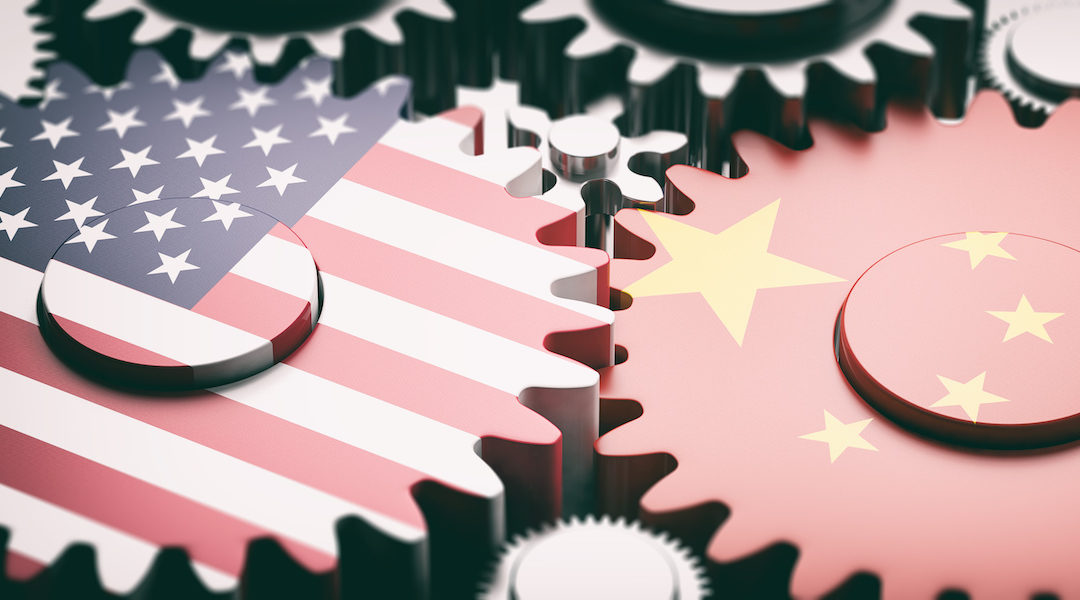
by ClausenCenter | Feb 7, 2023 | Conferences, Events
On Thursday, Feb. 16, starting at noon the Clausen Center and UC Berkeley Social Science Matrix will co-sponsor a panel discussion on ‘Economics and Geopolitics in U.S. International Relations: China, Europe, and the Global South”. The event will be held in the Spieker Forum, 6th Floor, Chou Hall, of the Haas School of Business.
REGISTER NOW
The pandemic and the war in Ukraine have reshaped global geopolitics, trade, and security. How will these changes affect the relationship between the US and China, Europe, and the Global South? How will they impact US firms operating globally, and how might foreign leaders — and notably the Chinese leadership — respond? In this panel discussion, a group of distinguished scholars will answer these questions and address the possible implications for the global multilateral order established in the second half of the 20th century.
Panelists
Mariano-Florentino (Tino) Cuéllar, President, Carnegie Endowment for International Peace, former justice of the Supreme Court of California
James Fearon, Theodore and Frances Geballe Professor, Stanford School of Humanities and Sciences; Professor of Political Science, Senior Fellow, Freeman-Spogli Institute for International Studies
Pierre-Olivier Gourinchas, Economic Counsellor and the Director of Research, International Monetary Fund; S.K. and Angela Chan Professor of Global Management, UC Berkeley Department of Economics and at the Haas School of Business
Laura Tyson, Class of 1939 Professor of Economics and Business Administration and Distinguished Professor Emerita of Economics, UC Berkeley
John Zysman (moderator), Professor Emeritus at UC Berkeley, co-founder/co-director of the Berkeley Roundtable on the International Economy
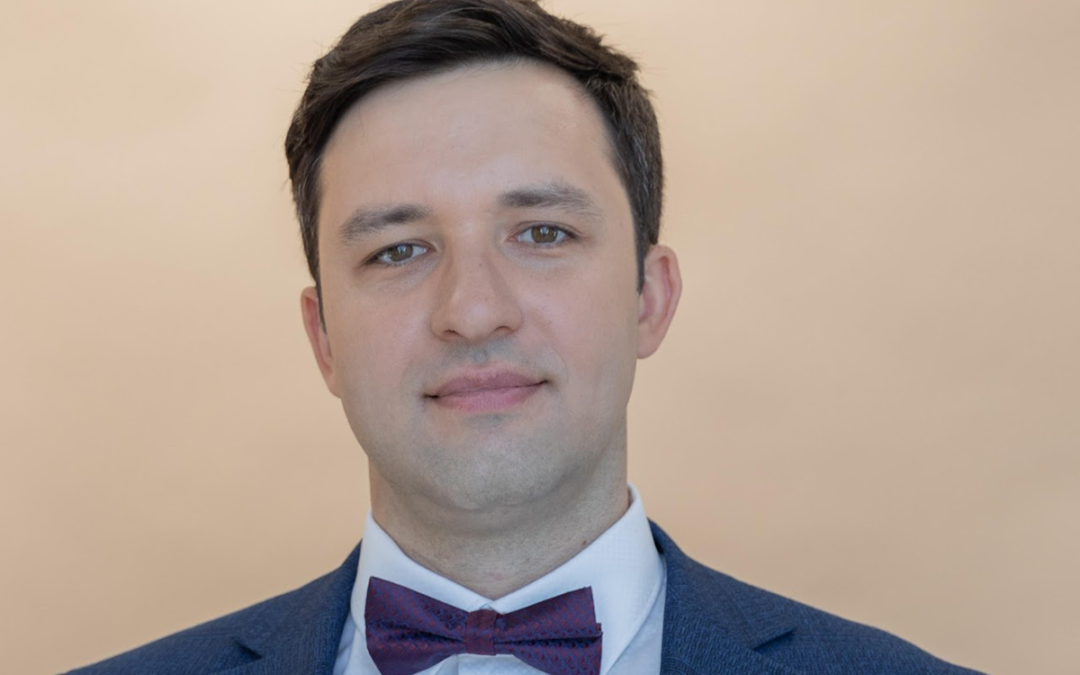
by ClausenCenter | Dec 7, 2022 | News
Sergii Kiiashko, an assistant professor at the Kyiv School of Economics and a senior researcher at the Department of Monetary Policy and Economic Analysis of the National Bank of Ukraine, has been named the Clausen Center Ukraine Fellow for the 2022-2023 academic year. The fellowship, part of a joint effort by the UC Berkeley Department of Economics and the Haas School of Business, is designed to support Ukrainian business and economics scholarship during the ongoing war. The program is coordinated by Quantedge Presidential Professor of Economics Yuriy Gorodnichenko.
Kiiashko’s research interests include macroeconomics and international economics, with a focus on economic policy during crises. He received his doctorate in 2018 from Princeton University.
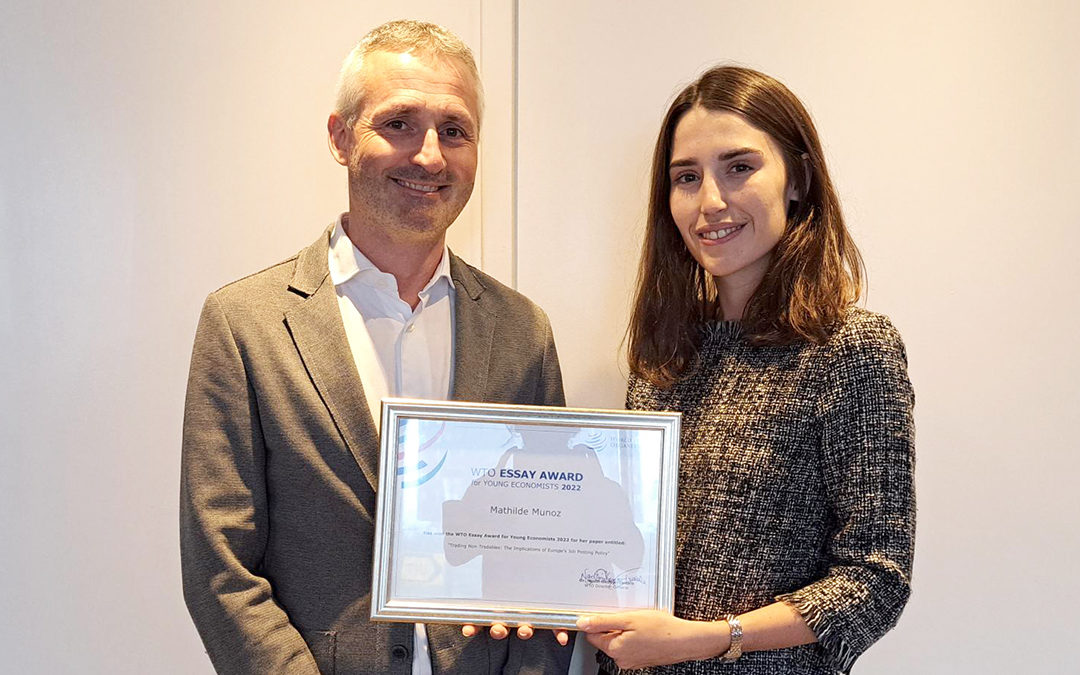
by ClausenCenter | Sep 9, 2022 | News, Research
The winner of the 2022 WTO Essay Award for Young Economists is Mathilde Muñoz of the James M. and Cathleen D. Stone Center on Wealth and Income Inequality at the University of California, Berkeley. Her paper, “Trading Non-Tradables: The Implications of Europe’s Job Posting Policy”, was ranked first by the Selection Panel. She was presented with her prize of CHF 5,000 at the annual meeting of the European Trade Study Group in Groningen (the Netherlands) on 8 September 2022. Muñoz is an affiliated faculty member with the Clausen Center.
> Read the full story

 All sessions will be held at:
All sessions will be held at: Le Meridien San Francisco, 333 Battery Street, San Francisco
Le Meridien San Francisco, 333 Battery Street, San Francisco


